Community-engaged Research for Clean Energy Solutions (CERCES) - Workshop
Date: Thursday, October 24th from 8:30am to 4:30pm
Location: Blum Hall, Room B100
UC Berkeley will host a workshop on Community-engaged Research for Clean Energy Solutions (CERCES), as part of the UC Laboratory Fees Research Program. In person attendance is limited but encouraged; a remote participation option is available. Please RSVP by Friday, October 18th.
Program
| 8:30am | Registration & Light breakfast available |
| 9:00am | Welcome & Land Acknowledgement, Lok Siu, Associate Vice Chancellor for Research, UC Berkeley (Workshop Moderator) Opening Remarks from Vice Chancellor for Research, UC Berkeley Kathy Yelick |
| 9:10am | Presentation and Background on UCOP Lab Fees Research Program Dr. Leila Sievanen, UCOP Lab Fees Research Program Officer |
| 9:30am | Community-engaged Research Projects - Panel #1: Agrivoltaics in California Sarah Kurtz, Professor, School of Engineering, UC Merced + Dr. Amrith Gunesekara, California Bountiful Foundation (via ZOOM) Timothy Bowles, Associate Professor, Environmental Science, Policy & Management and Charlene Kaloki, Community Programs Manager, College of Environmental Design Moderator, Dr. Louise Bedsworth, Executive Director, Center for Law, Energy & the Environment, UC Berkeley |
| 10:15am | Break |
| 10:25am | Community-engaged Research Projects - Panel #2: Infrastructure & Planning for Environmental Justice Dr. Therese Peffer, Associate Director, CITRIS Climate and California Institute for Energy and the Environment (CIEE) Presenting on Oakland EcoBlock Project Catherine Brinkley, Associate Professor, Human Ecology, Community & Regional Development, UC Davis Moderator, Keith Taylor, Associate Professor, Human Ecology, Community & Regional Development, UC Davis |
| 11:10am | Break |
| 11:20am | Panel #3: Climate Resiliency & Community Engagement Dr. Minerva Uribe-Robles, Lawrence Livermore National Lab & Dr. Kim Mayfield, Research Scientist, Energy Group, Lawrence Livermore National Lab Ricardo de Castro, Assistant Professor, Mechanical Engineering, UC Merced + Adam Amaral, Office of Emergency Services Manager County of Merced Moderator, Bruce Riordan, Berkeley Climate Change Network (BCCN), UC Berkeley |
| 12:05pm | Lunch Served |
| 1:15pm | Panel Discussion: Funders of Community-engaged Research for Clean Energy Solutions Dr. Evan Michelson, Program Director, Alfred P. Sloan Foundation (via ZOOM) Michael Ferreira, Technology and Entrepreneurship Branch, Energy Research & Development Division, California Energy Commission Moderator: Pramod Khargonekar, Vice Chancellor for Research & Distinguished Professor of Electrical Engineering and Computer Science, UC Irvine |
| 2:00pm | Breakout Group Discussions - Topics TBA |
| 2:45pm | Afternoon break/refreshments |
| 3:05pm | Resume Breakout Group Discussions |
| 3:50pm | Reports from Breakout Group Discussions & Next Steps |
| 4:30pm | Close |
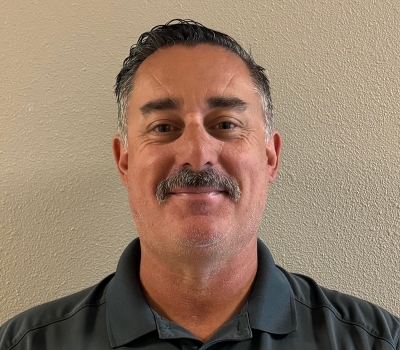
Adam Amaral began his career with the State of California in 2002 as a Firefighter with CAL FIRE. In 2008, Adam was promoted to a Company Officer with Madera, Mariposa, and Merced Unit. While working for CAL FIRE, Adam was a member of (2) Type 1, Incident Management Teams and a member of the Merced County Hazardous Materials team. In 2017 Adam obtained a position with Cal OES as a State Emergency Manager (ESC) in Region II Coastal Region. A year later, Adam was promoted to Senior State Emergency Manager (SESC) and temporarily filled the acting Deputy Regional Administrator position for Coastal Response Operations for one year. During his tenure with Cal OES, Adam was deployed to (9) Federal declared disasters in the state. Adam holds a Bachelor’s degree in Public Administration, is an Emergency Management Specialist and a State/Federal instructor for Cal OES/CSTI/FEMA, teaching various Hazardous Materials and Emergency Management courses. Adam was the Cal OES Region II Emergency Management training and exercise coordinator, which supported 12 Operational areas with training and exercise development. Adam currently sits on the State SEMS Advisory Committee as the lead subject matter expert to the Emergency Operations Center (EOC) working group and is the Region V SEMS Advisory Board Member.
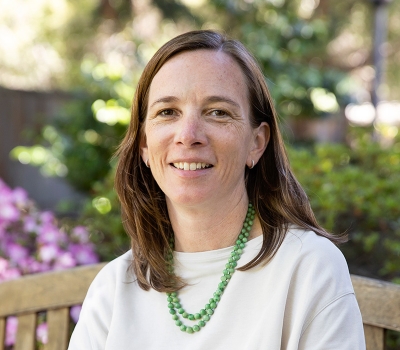
Louise Bedsworth is Executive Director at the Center for Law, Energy, and the Environment (CLEE) where she also serves as a Senior Advisor to the California-China Climate Institute. Before joining CLEE, Louise spent nearly a decade working for the State of California, most recently as the Executive Director of the Strategic Growth Council, a Cabinet-level State institution that brings together multiple agencies and departments to support sustainable communities emphasizing strong economies, social equity, and environmental stewardship. Prior to joining SGC, Louise was the Deputy Director of the Office of Planning and Research in Governor Jerry Brown’s office. At OPR, she led work on a number of collaborative research initiatives and climate change adaptation and resilience, including development of the Integrated Climate Adaptation and Resiliency Program and implementation of the State’s $70 million grant awarded under the National Disaster Resilience Competition. Before joining OPR, Louise was a research fellow at the Public Policy Institute of California, where her work focused on climate change adaptation, local government action on climate change, and transportation. She has also held positions at the Union of Concerned Scientists, Redefining Progress, and the International Institute of Applied Systems Analysis. Louise received a B.S. in Earth, Atmospheric, and Planetary Sciences from the Massachusetts Institute of Technology and an M.S. in Environmental Engineering and Ph.D. in Energy and Resources, both from the University of California at Berkeley.
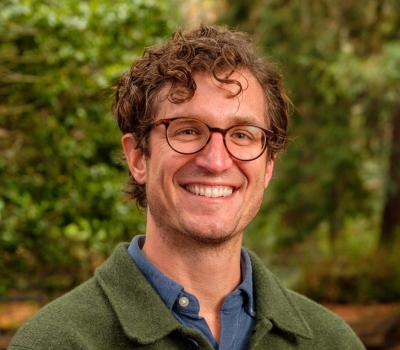
Timothy Bowles is an Assistant Professor in the Department of Environmental Science, Policy & Management. His research focuses on how can reliance on biodiversity and ecological processes create productive, resilient, and healthy agricultural systems? This question frames his overarching goal, which is to support transformation of our agricultural system from one reliant on intensive, synthetic inputs to one based on ecological processes. In particular, he is interested in how diversified, biologically-based farms affect soil health, resource-use-efficiency, and resilience to environmental change, especially drought. This research lies at the intersection of agroecology, soil ecology, and biogeochemistry with a focus on plant-soil-microbe interactions. He uses several approaches, including on-farm research across agricultural landscapes, historical data synthesis from long-term trials, and field and greenhouse experiments. Through collaboration with farmers, agronomists, conservation biologists, social scientists, and economists he aims for a multidimensional perspective on agroecological transformation
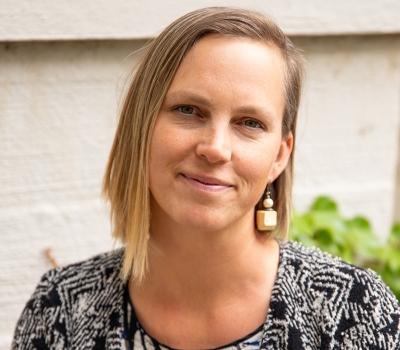
Dr. Catherine Brinkley is an Associate Professor in the College of Agricultural and Environmental Sciences at the University of California, Davis. With a PhD in city and regional planning and a veterinary medical degree, her research focuses on health and design. She is the lead architect of PlanSearch.caes.ucdavis.edu, a web-based search engine for California's General Plans that allows the public to rapidly see where and how local jurisdictions are planning for a myriad of topics- from state-level environmental justice mandates to United Nations Sustainable Development Goals. She is a former Fulbright Scholar, Watson Fellow, and National Science Foundation Career Award Winner.
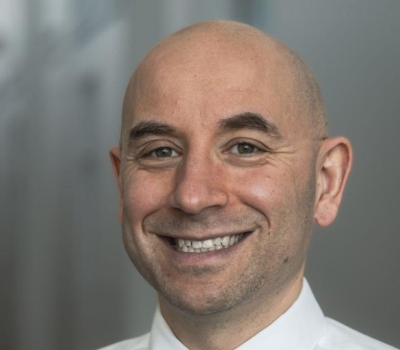
Ricardo de Castro received the Licenciatura and Ph.D. degrees in electrical and computers engineering from University of Porto, Faculty of Engineering, Portugal, in 2006 and 2013, respectively. During 2007-2008 he was an entrepreneur with the WeMoveU project, targeting the development of powertrain control solutions for lightweight electric vehicles. From 2013 to 2020, he was with the German Aerospace Center (DLR), Institute of System Dynamics and Control (SR), where he developed enabling technologies for electric mobility and automated driving. In 2021, he joined University of California, Merced as an assistant professor.
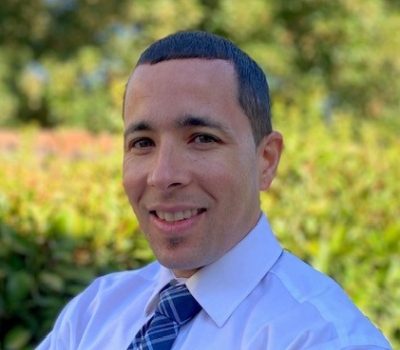
Michael Ferreira has spent 6 years at the CEC’s Energy Research and Development Division working in the Technology Innovation and Entrepreneurship Branch focused on increasing the capacity of customers and communities to adopt emerging energy technology solutions. Michael is the grant manager for several community-engaged research projects including the Oakland EcoBlock and Bassett-Avocado Advance Energy Community.
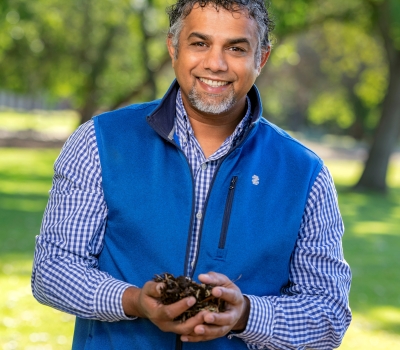
Dr. Amrith Gunasekara recently joined the California Bountiful Foundation as its new Director of Science and Research. He will conduct and support scientific studies on critical matters affecting California agricultural communities.
Dr. Gunasekara previously served as the Science Advisor to California Agriculture Secretary Karen Ross, and as Environmental Program Manager for the Office of Environmental Farming and Innovation at CDFA, which specialized in environmental incentive programs and climate change issues.
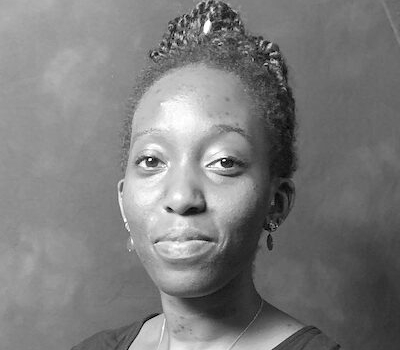
Charlene Kaloki is a health equity and environmental justice advocate seeking to contribute to a more conscious, integrated present and sustainable future. She enjoys working with others to co-create platforms and coalitions that promote equitable, innovative, and ecologically harmonious communities for knowledge and resource sharing.
During her seven years of residency in New York City, she served as a community relations coordinator and clinical health program manager for chronic disease care (diabetes, smoking cessation, HIV/AIDS, pediatric asthma, and opioid addiction) in community health centers. As a public health graduate student, her research explored the intersection of health outcomes, environmental pollution, the built environment, social justice, and climate change. She returns to California and joins IURD to continue a career in multi-sectoral partnership building for community-centered climate resiliency research and initiatives.
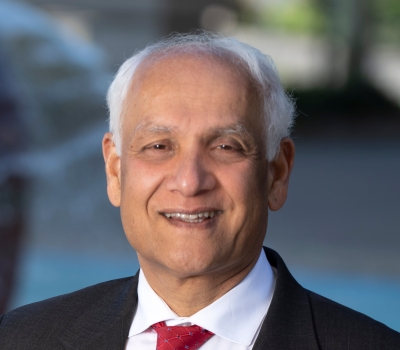
Pramod Khargonekar is the Vice Chancellor for Research & Distinguished Professor of Electrical Engineering and Computer Science, UC Irvine. Pramod was Chairman of the Electrical Engineering and Computer Science Department from 1997 to 2001 and held the position of Claude Shannon Professor of Engineering Science at the University of Michigan. From 2001 to 2009, he was Dean of the College of Engineering and Eckis Professor of Electrical and Computer Engineering at the University of Florida till 2016. He served as the head of the Engineering Directorate at the National Science Foundation till June 2016.
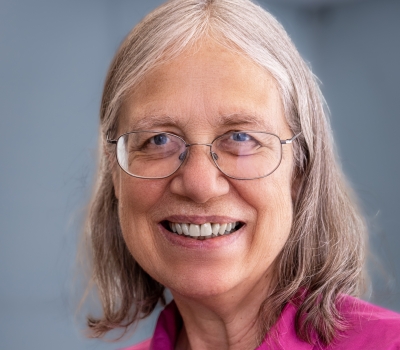
Sarah Kurtz obtained her PhD in 1985 from Harvard University and is now a Distinguished Professor at the University of California, Merced after more than 30 years working at the National Renewable Energy Laboratory, in Golden, CO. At the University of California, Merced she is working both to help the university grow and to support the Energy Transition by studying long-duration energy storage, monitoring of perovskite/silicon tandem modules, and starting a new study on agrivoltaics to help California sustain its agriculture with reduced water consumption while continuing to add more solar.

Dr. Mayfield’s academic career focused on the nexus of environmental chemistry and climate change, with expertise in groundwater and riverine chemistry; she contributed to research used in a landmark federal supreme court decision to protect coastal groundwater under the Clean Water Act and has been referred to as a ‘geochemical Santa Claus’ for her contributions to long-term climate models. Dr. Mayfield spent her industrial career innovating cheaper and safer methods to extract products from algae, efforts that were later recognized with an XPrize award to the company, and now – at Lawrence Livermore National Lab – Dr. Mayfield was the lead author for the Energy Equity and Environmental Justice chapter of the Roads to Removal report, which examined Carbon Dioxide Removal opportunities for each of the United States’ 3,143 counties.”
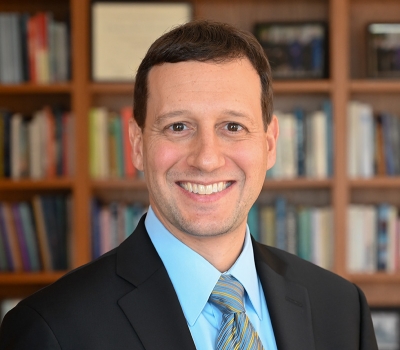
Evan S. Michelson, Ph.D. is a Program Director at the Alfred P. Sloan Foundation. Dr. Michelson is responsible for overseeing the Foundation’s Energy and Environment program, which seeks to inform the societal transition toward low-carbon energy systems in the United States by investigating economic, environmental, technological, and distributional issues. The Energy and Environment program is unique for its focus on supporting influential, interdisciplinary research, training, networking, and dissemination efforts. He also manages the Foundation’s grantmaking to the Sloan Digital Sky Survey, a transformational international astrophysics research collaboration focused on exploring the evolution and structure of the universe.
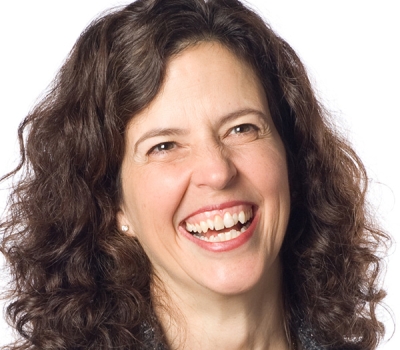
Therese Peffer, PhD, is a project manager and researcher at the California Institute for Energy and Environment (CIEE) within the Center for Information Technology Research in the Interest of Society (CITRIS) at the University of California, Berkeley. Therese manages and conducts research in smart building technologies, building-to-grid, demand response, demand flexibility, and smart grid research projects with the objective of creating comfortable and energy efficient livable spaces. She serves as an Associate Director for CIEE and for the CITRIS Climate initiative and is the co-Chair of the annual Behavior Energy and Climate Change conference. She is currently managing the Energy Commission funded EcoBlock and large commercial decarbonization projects and the Dept. of Energy-funded Brick project. Previous research includes energy consumption displays, thermostats, consumer behavior, and user interface usability research. Therese completed a Ph.D. in Architecture with an emphasis on building science at UC Berkeley. As an architect, she worked in San Francisco and Pismo Beach, CA. Therese earned a Master’s degree in Architecture at the University of Oregon. She lived on a solar and wind-powered homestead while working for Home Power magazine.
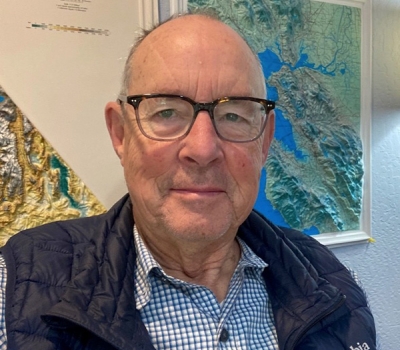
Bruce Riordan is the Director of the Berkeley Climate Change Network (BCCN), a collaboration of 300+ individuals and 75 institutes, centers, and labs at UC Berkeley and Berkeley Lab who are working in the climate change area. The BCCN includes faculty and staff from traditional STEM disciplines as well as researchers from the social sciences such as Berkeley Law School, Haas School of Business and Goldman School of Public Policy, and researchers from the School of Public Health, Humanities and Arts. Bruce Riordan brings to UC Berkeley years of experience in climate and resilience strategy and partnership building across all sectors in the Bay Area and California. Mr. Riordan served as the Climate Strategist for the Bay Area Joint Policy Committee where he led the Bay Area Climate & Energy Resilience Project funded by the Kresge Foundation. He is also the Co-Founder of the Alliance of Regional Collaboratives for Climate Adaptation (ARCCA) bringing together climate adaptation leaders from San Diego, Los Angeles, the Bay Area, Central Coast, North Coast, Sacramento, and the Sierra. Additionally, Mr. Riordan has served on the Governor’s Office of Planning and Research’s statewide Advisory Committee on climate resilience and has consulted on climate strategies for BART, Next 10, the Marin Community Foundation, the Metropolitan Transportation Commission, and the Bay Area Quality Management District. At UC Berkeley, Mr. Riordan helped to operate the Climate Readiness Institute 2017-2020.
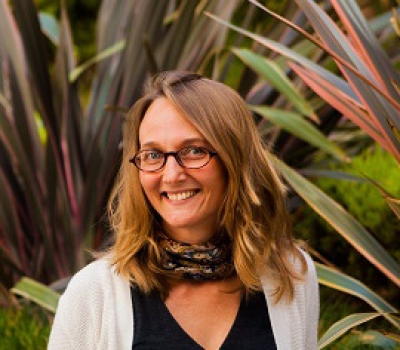
Dr. Leila Sievanen is a Program Officer at the UC Office of the President and is currently a Lab Fees Research Program lead. She is dedicated to advancing interdisciplinary research in social and ecological sciences and integrating local communities to address climate change. She holds a PhD in Environmental Anthropology from the University of Washington, a bachelor’s in Biological Sciences from UC Davis, and completed a postdoc at Brown University. She co-authored the first coast and oceans report for California’s Fourth Climate Change Assessment and her research in the US, Southeast Asia, and Latin America has been supported by NSF, Fulbright, and private foundations.

Lok Siu serves as the Associate Vice Chancellor for Research and Professor of Ethnic Studies at UC Berkeley. Professor Siu is a cultural anthropologist with research expertise in diaspora, transnational migration, belonging and citizenship, food, racial/ethnic/gender formation, ethnography, and hemispheric Asian American studies. She is an award-winning author and the recipient of the Berkeley Faculty Service Award (2023) and the Graduate Assembly Faculty Mentor Award (2022).
She has served as Chair of the Asian American Research Center and as Program Coordinator of the Asian American and Asian Diaspora Studies at UC Berkeley. Professor Siu also served as Chair of the Senate committee on Diversity, Equity, and Campus Climate from 2020-22 and previously was a member of that committee. She was a member of the Divisional Council from 2020 to 2022, and served as Chair (2018-19) and Vice Chair (2017-18) of the systemwide UC Senate Committee on Affirmative Action, Diversity, and Equity.
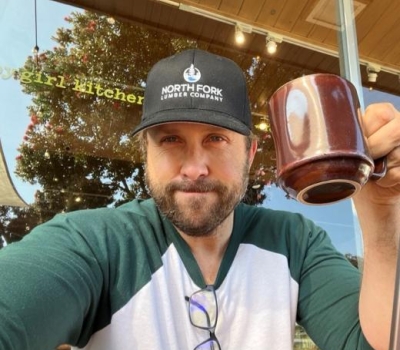
Keith Taylor is an Assistant Professor of Cooperative Extension & Community Economic Development is the Department of Human Ecology at UC Davis. His Cooperative Extension educational work seeks to inspire communities to act in cultivating their individual capabilities, developing these institutions, and enhancing those organizations vital for individuals and communities to thrive. He has expertise in community economic development policies and practices; Triple Bottom Line business forms and hybrid enterprise, such as co-operatives, nonprofits, B-corps, small businesses, and associations, and; the governance and management of communities and Triple Bottom Line enterprise. He brings UC’s renowned classroom experience to California communities, translating evidence-based social science to practice, and works directly and co-create with changemakers, urban planners and economic developers, and a range of business development interests to build community solutions. I leverage agile strategic planning approaches and connection to real-world resources -in the form of practitioners, knowledge, and networks- for rapid implementation.
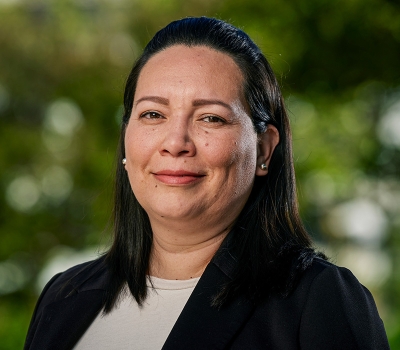
Dr. Minerva Uribe-Robles is a Staff Scientist at Lawrence Livermore National Laboratory. She is dedicated to supporting community engaged research with communities in California Central Valley under the Carbon Initiative, aimed at decreasing greenhouse gas accumulation by implementing solutions which remove carbon dioxide from the atmosphere. Minerva areas of focus are community engagement and bilingual science communication. Prior to joining LLNL, she completed her PhD in Materials Science and Engineering at the University of California Riverside.
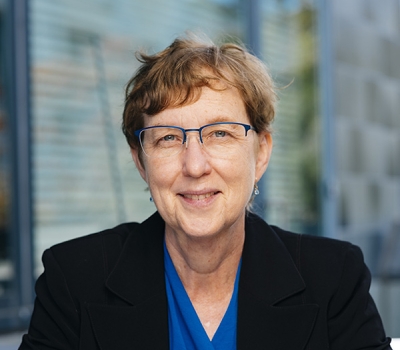
Katherine A. Yelick serves as Vice Chancellor for Research with overall responsibility for UC Berkeley’s research endeavor. She provides primary leadership in research policy, planning, and administration, including relations between the university and industry, research compliance, research communications, and research support for the Berkeley campus.
She is the Robert S. Pepper Distinguished Professor of Electrical Engineering and Computer Sciences and served previously as Executive Associate Dean in the Division of Computing, Data Science and Society (CDSS). She is also a Senior Faculty Scientist at Lawrence Berkeley National Laboratory. Her research is in high performance computing, programming systems, parallel algorithms, and computational genomics. She is well known for her work in Partitioned Global Address Space languages, including co-inventing the Unified Parallel C (UPC) and Titanium languages. She has worked on interdisciplinary teams developing scientific applications ranging from simulations of chemistry, fusion, and blood flow in the heart to analysis problems in phylogenetics and genome assembly. She currently leads the ExaBiome project on Exascale Solutions for Microbiome Analysis, part of the Department of Energy's Exascale Computing Project.
Yelick was Director of the National Energy Research Scientific Computing Center (NERSC) from 2008 to 2012 and the led the Computing Sciences Area at Berkeley Lab from 2010 through 2019, where she oversaw NERSC, the Energy Sciences Network (ESnet) and the Computational Research Division of scientists and engineers in applied math, computer science, data science and computational science. She earned her Ph.D. in Electrical Engineering and Computer Science from MIT and has been a professor at UC Berkeley since 1991 with a joint research appointment at Berkeley Lab since 1996.
